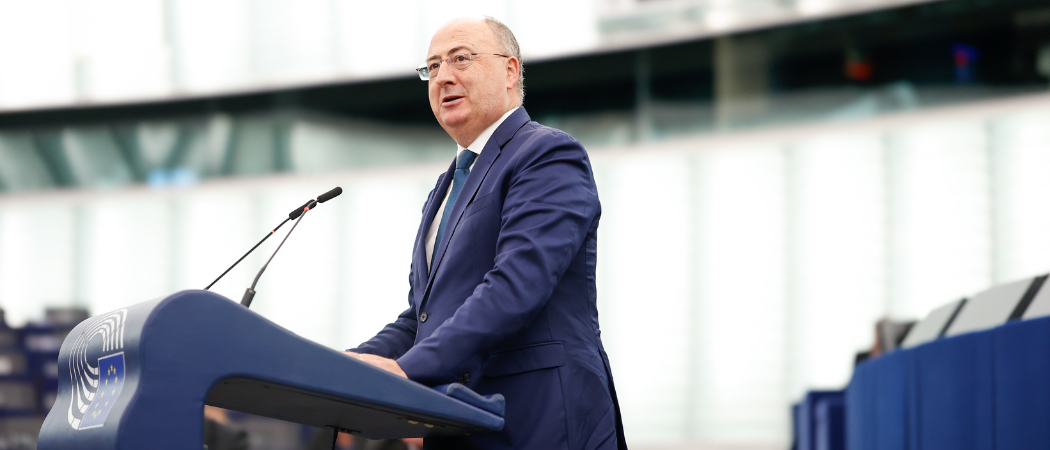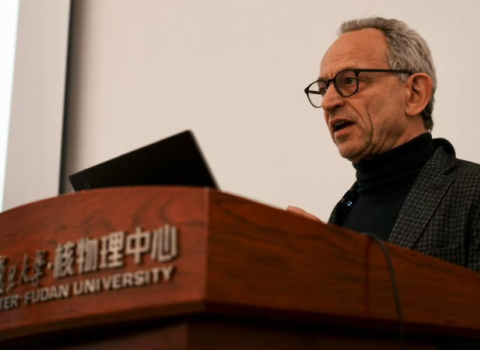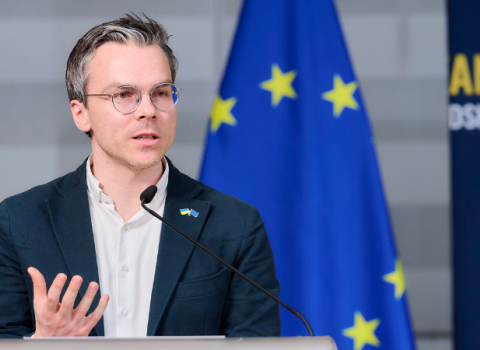MEPs want an additional €3B for the Strategic Technologies for European Platform, bringing the total budget for the scheme to promote European manufacturing in critical sectors to €13B. Now attention turns to negotiating the terms with member states

MEP José Manuel Fernandes. Photo: Mathieu Cugnot / European Union
MEPs are calling on the EU Council to fulfil its promises on strategic autonomy, after voting through their negotiating position on the Strategic Technologies for European Platform (STEP) in Strasbourg today.
MEPs are requesting a further €3 billion from national budgets to add to the €10 billion budget proposed by the Commission. However, they still disagree over the scope and budget of the programme.
STEP aims to boost manufacturing capacity for critical digital, net-zero and biotechnologies by redirecting funds from existing programmes and providing additional funding. The objective is to bolster Europe’s technological sovereignty and resilience in fields including artificial intelligence, renewable energy, and pharmaceuticals.
Negotiations with member states will follow once the EU Council agrees a common position. Deliberations will include a debate between the heads of state at the next European Council meeting at the end of October.
Co-rapporteur José Manuel Fernandes MEP expects member states to support the proposal. “Otherwise, the Council will have to explain to citizens why they talk about strategic autonomy, and then do not work to achieve it,” he told Science|Business.
The budget question is linked to the ongoing mid-term review of the EU’s overall 2021-2027 budget. Member states may not like the idea of handing over more money, but “we are talking about investments with high added value,” Fernandes said.
The idea, as originally proposed by the President Ursula von der Leyen, was to set up a new European Sovereignty Fund to compete with the US Inflation Reduction Act. The Commission was eventually forced to water this down and settle for implementing STEP through existing programmes.
Under Parliament’s proposal, there would be top-ups of €5 billion for the Innovation Fund, €4.2 billion for InvestEU, €2.5 billion for the European Defence Fund, and €1.3 billion for Horizon Europe. Selected projects would be given a ‘sovereignty seal’, which should attract public and private funding and fast-track the granting of EU funds.
One reason Parliament is asking for more member state funding is to prevent €800 million being redirected from Horizon Europe’s Pillar II to the European Innovation Council Accelerator in Pillar III.
The Commission’s proposal was unacceptable on principle, Fernandes said, as “a redeployment is a cut.” Ahead of the vote, the League of European Research Universities welcomed Parliament’s position, warning, “There’s no spare money in Horizon Europe.”
During the plenary debate on Monday, MEPs praised the proposal as a “small step in the right direction”, while also criticising the lack of ambition in the decision not to create a fully-fledged sovereignty fund.
“Let’s not deceive ourselves, it’s not going to revolutionise Europe. It doesn’t have the resources or the infrastructure our global competitors such as the US and China have,” said Eva Maria Poptcheva of Renew Europe.
Valérie Hayer MEP said STEP is a “concrete tool to reduce our dependency,” but warned “Only a true European fund that will guarantee our food security, support European defence, finance our health and support all technologies will ensure our sovereignty.
Fernandes backed the decision to implement STEP through existing programmes, saying it represents a sensible strategy which will be easier to sell to member states. If the Commission had presented a new fund it would not have been approved during this budget cycle. “We wouldn’t have had a sovereignty fund in place,” he said.
Using existing programmes will speed up the process and act as a testbed with a view to creating a sovereignty fund after 2027. “We can have STEP projects from next year,” Fernandes said.
Fernandes also downplayed concerns that the €13 billion budget is insufficient, pointing to the Commission’s claims that STEP could leverage up to €160 billion of investment.
In addition to the budget top-up, MEPs are proposing the creation of a STEP Committee which would assess the work of the different programmes. This would increase transparency, and help to ensure a geographical balance and that the projects cover more than one type of technology, Fernandes said.
The Parliament’s proposal also provides for closer alignment with other recent pieces of legislation on industrial competitiveness, such as the Critical Raw Materials Act and the Net Zero Industry Act.
Some MEPs however called for STEP funding to be even more targeted. Left MEP Cornelia Ernst said the sovereignty seal lacks strong conditions, concerning “a decarbonisation plan […] and good employment and environmental standards”.
The limited resources mean “STEP should be concentrated on key sectors like net zero and green technologies,” said Green MEP Rasmus Andresen.
MEPs are insisting that STEP, along with the long-term EU budget revision, should be agreed as soon as possible so the package can be integrated into next year’s annual budget, which is due to be negotiated in November 2023.





 A unique international forum for public research organisations and companies to connect their external engagement with strategic interests around their R&D system.
A unique international forum for public research organisations and companies to connect their external engagement with strategic interests around their R&D system.